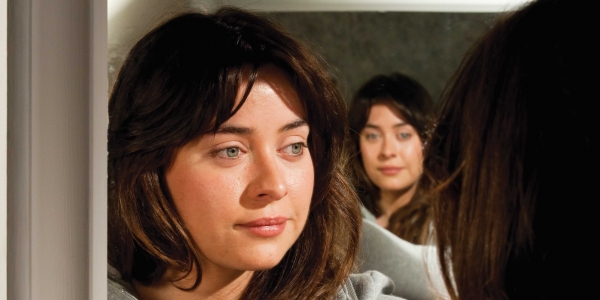“Annie Baker has it drilled down into a very naturalistic style which contains all the squeaks of everyday language – so you get all the broken sentences and cut-offs and there is nothing that feels forced about her writing. ‘Circle Mirror Transformation’ also presents itself as being a play, in some ways, about acting, or about the silliness of acting. Metaphorically it plays into how we behave in our lives, how we almost act our way through the world. I like that it’s all done in a gentle voice, though, it’s very ambient and it’s quite philosophical at the heart of it. At the same time, it’s still quite gripping and devastating, but it’s funny too. I think this is what is going to strike a chord with the audience.”
For Fennessy, it’s the universal nature of the characters which truly make the play, however. With personalities that just about everybody can relate to, the Melbourne director claims ‘Circle Mirror Transformation’ is a play that will undoubtedly attract a large demographic.
“That’s really the beauty of this play,” he insists. “They’re not archetypes, they’re not stereotypical. The characters all have edges, but they’re very identifiable. You’ll definitely know these types of people in your everyday life. For that reason, nobody particularly stands out and yet they are fantastic and intriguing in their own way. Some deal with self-hatred, some deal with narcissism, others are just the lonely types, and others are daring risk-takers… I like the way Baker sort of cleverly hands over the meaning of the play to a 16-year-old character who says virtually nothing throughout the play, she almost has no dialogue. The whole time she seems very reluctant to be in the room and she’s very shy and awkward, until this very magical moment in the final scene where she gets up and does an improvisation which talks about change.”
From a director’s point of view, Fennessy says it was a pleasure to work on Baker’s sell-out piece, mostly due to its simplicity. Describing the experience of bringing ‘Circle Mirror’ to life at the MTC Theatre, Fennessy says it’s been quite an unusual experience for that reason.
“It’s all been positive and joyful which is not the norm,” laughs the director. “Usually the American works produced in Australian are rather big, heavy hitters, like the mammoth aggressive American playwrights. Normally the whole process is quite hectic and you’re working really hard to solve things and it all takes a lot of effort. The characters are so efficiently drawn and so enjoyable at the same time in this play. There is no dominant character, there are no monsters or heroes, it’s just a bunch of unsure, uncertain human beings. With this one, it’s just such a well-written piece that it just revealed itself very easily.”
In fact, Fennessy claims it’s not a big surprise that Baker has been touted “one of the most promising new stage talents to emerge in the past decade,” according to The New York Times. There’s a lot of hype surrounding Baker’s work, as Fennessy points out, and for good reason, too.
“I know that she is about 30 years old. She is a New Yorker, she’s half Jewish and half Catholic, so she’s quite interesting. She wrote this play when she was about 28 years old. It had an unprecedented run last year on Broadway where both ‘Circle Mirror Transformation’ as well as her other play ‘The Aliens’ were running concurrently on Broadway. Amazingly, both were sell-outs and I don’t think that’s actually happened to a playwright, young or old, male or female, in a vey, vey long time. She’s definitely something special. I found out about the play just scouring the web last year when I came across a couple of the reviews it received. She’s very imaginative as well because with these plays, she’s invented the town of Shirley, Vermont from scratch, totally in her mind. I like that a lot, that she’s gone and created an entire world in her head, a perfect little world for these amazing but ordinary characters. In the beginning, I looked at the play and thought to myself, ‘oh, I’ll just read the first five pages or something’, but I ended up reading the whole thing because I couldn’t put it down.”

